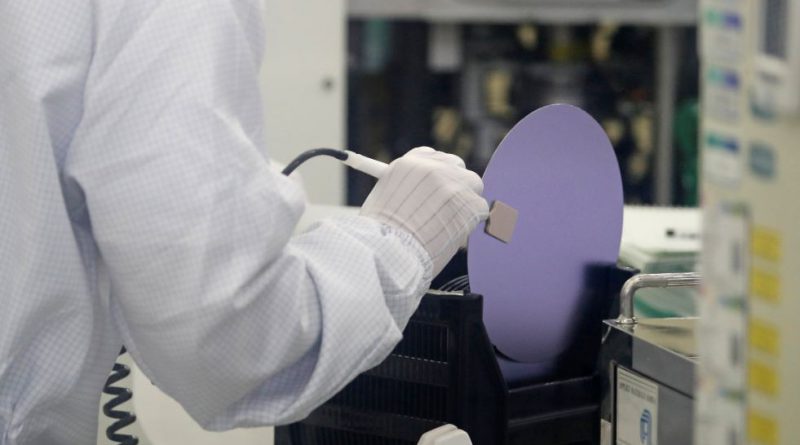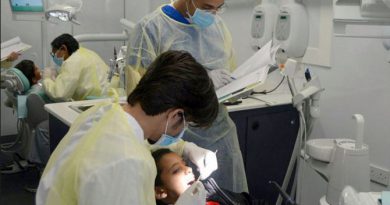South Korea vows support for its chip sector amid China-US tension
Seoul (Reuters) – South Korea pledged support for its chip sector on Thursday, with President Yoon Suk Yeol describing competition in the industry as an “all-out war” amid heightened Sino-U.S. tension.
Earlier in the day, Yoon met with about 60 industry leaders, lawmakers and ministers to discuss how to maintain South Korea’s lead in memory chips, foster development of system semiconductors, and secure materials, equipment and labour.
“Geopolitical issues have become the biggest risk for companies to manage as of late. Companies alone cannot resolve this problem – it is one that the nation should tackle by strengthening cooperation with and closely communicating with like-minded countries like the United States,” Yoon told the meeting.
The government plans to help expand research and development, bolster smaller players, strengthen legal protection for chip technology and set up a chip testing facility, the industry ministry said in a statement.
South Korea has sought to avoid becoming embroiled in a tit-for-tat row between China and the United States over semiconductors.
On one hand, chipmakers Samsung Electronics Co Ltd (005930.KS) and SK Hynix Inc (000660.KS) depend on U.S. technology and equipment. At the same time, about 40% of South Korea’s chip exports go to China, trade ministry data showed.
When Washington announced restrictions on exports of chip-making tools to China last October, it issued a one-year waiver for Samsung and SK Hynix, which have manufacturing facilities there, so they could import tools without having to apply for a licence. Whether that waiver will be extended is not clear.
Credit-rating firm Fitch on Wednesday said it did not expect major long-term supply disruption from the Sino-U.S. chip dispute as South Korea would become the main location for Samsung and SK Hynix’s investment and technology upgrades.
“However, risks could increase if the dispute escalates in ways that more markedly affect the cost and availability of semiconductor supply-chain components, including more extreme rulings or bans by either the U.S. or China,” Fitch Ratings said in a client note.
China accounts for 40% of Samsung’s NAND memory chip production capacity and 40% to 50% of SK Hynix’s DRAM production capacity and 20% of its NAND capacity, Fitch estimated.


